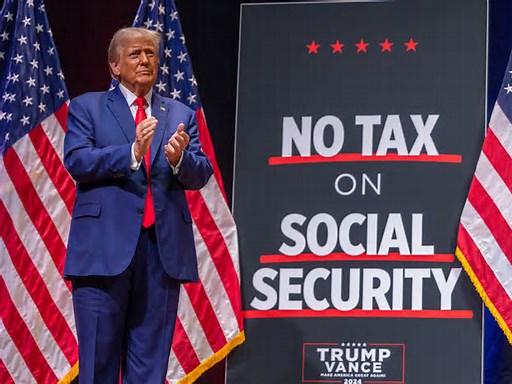
Tax cuts, tariffs and deportation:
How economists say Donald Trump would increase inflation
|
Grilled recently about the costs of childcare at the New York Economic Club, Donald Trump turned to tariffs, which he said would generate trillions of dollars for the government.
”As much as childcare is talked about as being expensive, it is relatively speaking not very expensive compared to the kind of numbers we’ll be taking in,” he said in an off-topic answer to the question.
But tariffs − which, along with tax cuts and deporting undocumented immigrants, are among Trump’s top priorities − are at odds with Trump’s promise to eradicate inflation.In poll after poll, American voters report inflation as one of their top concerns. Although the rate of inflation has dropped to 2.5%, they’re angry that prices have stayed high since their post-pandemic spike: food is 20% more expensive than in 2020 and housing keeps getting more unaffordable. The issue was the opening topic at Tuesday’s presidential debate.
Both presidential candidates promise to address inflation and rising costs of living. Several economists, though, have zeroed in on Trump’s proposals − which rely heavily on tariffs −and argue that his plan could make inflation worse.
Despite that, Trump has strong support from many in the business community because of other proposals, such as deregulation and lower corporate tax rates.
A statement from campaign spokesperson Karoline Leavitt blamed inflation on Harris’ “tie-breaking vote in the Senate for the $400 billion dollar boondoggle Inflation Reduction Act and her support for Biden’s war on our domestic energy industry.”
One of the nation’s largest investment banks, Goldman Sachs, warned earlier this month that Trump’s plan for across-the-board tariffs could boost inflation in 2025 by as much as 1.2%.
Other Trump proposals − tax cuts that could raise the deficit, putting pressure on the Federal Reserve to lower interest rates, and mass deportations of undocumented immigrants − could also cause inflation.
Some economists say that with the nation’s unemployment rate near record lows and wages rising steadily, big tax cuts and drops in interest rates would trigger new inflation. That’s because inflation is caused by a lack of supply relative to demand, and both the Trump economic promises − tax and interest rate cuts − would boost demand for new products.
